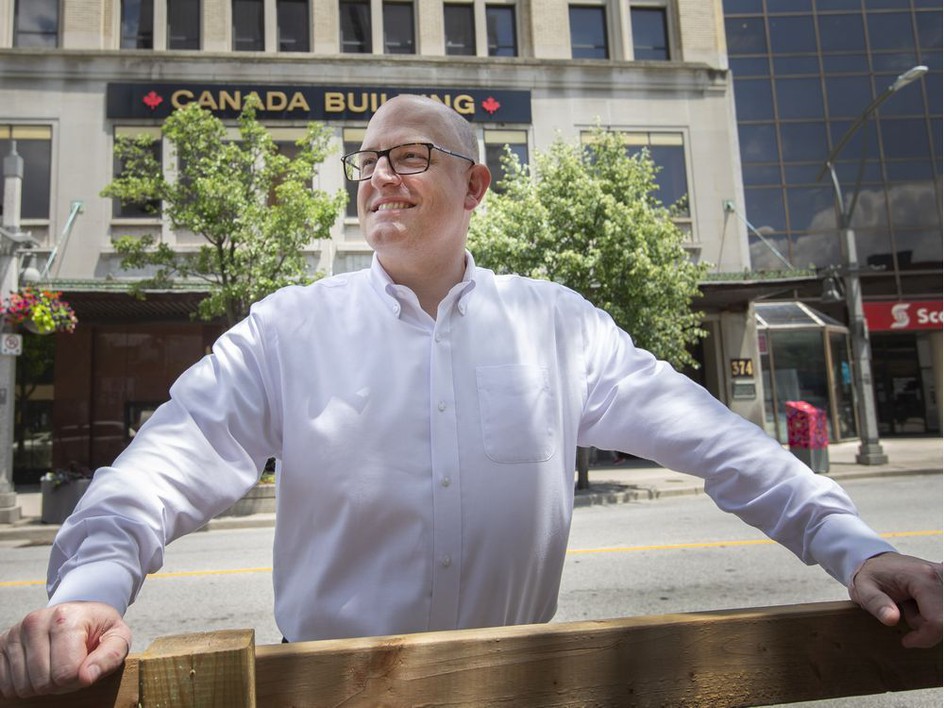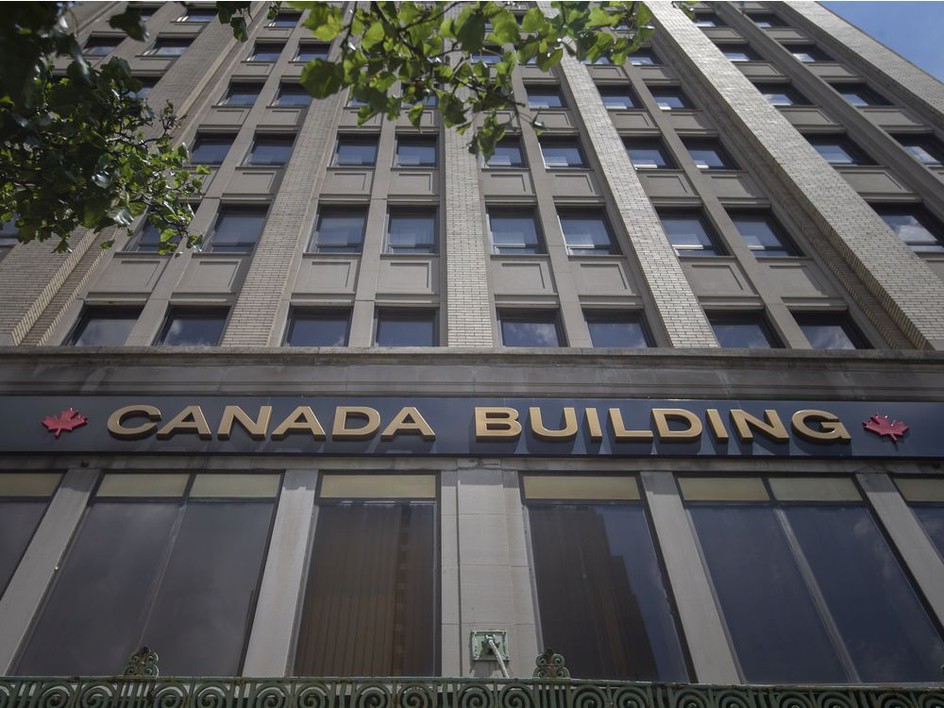
City council will decide next week on whether to approve almost $700,000 in incentives to spur $12 million worth of transformative redevelopments in the downtown and F––ord City.
“This is actually the power of a strong real estate market, coupled with the CIP incentives, that really makes this time exciting,” said Mayor Drew Dilkens.
He was referring on Monday to the community improvement plans passed in recent years for Ford City and the downtown that are now paying dividends in encouraging investors to transform faded and under-utilized core buildings for uses that are needed and seen as boosting the local economy.
Since the downtown CIP was approved by council in 2017, 24 projects worth a total of $135 million have been approved for grants, not including the three downtown applications going to council next Monday.
A prime example is the $11-million conversion of the top 10 floors of vacant office space in the venerable Canada Building on Ouellette Avenue into 88 residential units, plus renovating the first two floors for commercial occupancy. Council will consider an application from owners Reed Renaud, Rhys Trenhaile, Gord Martin and Caroline Martin for a total of $412,780 in CIP grants.
That includes a $30,000 building facade grant, an upper-storey residential grant that pays $5,000 per unit up to $50,000 for creating residential on upper floors, and a $332,780 building/property improvement tax increment grant, which offsets the municipal tax increase on the renovated property for 10 years. In this case, the current tax of $70,448 is projected to increase to $103,726, but the city will forgive the difference — $33,278 — over the first 10 years.
The CIPs have been a tipping point when it comes to development downtown, said Trenhaile, who is helping lead the Canada Building project.
“It’s one of two major factors why you’re seeing all this development.” One factor is rising housing prices, which have gotten to the point where investors can now make a profit converting an old building into badly needed residential. The second factor is the CIP, he said, because it reduces a developer’s costs and assures that one of those costs — property taxes — will stay low and stable for up to 10 years.
A very strong, direct message to the developer that the City of Windsor is open for business
But the CIP doesn’t just help save the developer money, said Trenhaile.
“The CIP is also giving a very strong, direct message to the developer that the City of Windsor is open for business for development,” he said.
“As soon as you see that CIP and you see how strongly and how interested and focussed the city is to get these projects up and running … it makes developers more confident they can get their projects through city hall.”
Two more downtown projects are applying for CIP incentives, including Dr. Nasser Zaki’s ambitious $1-million plan to convert the derelict former Bentley’s Roadhouse building at 747 Ouellette Ave. into a medical centre, pharmacy and lab.
The once-popular downtown bar closed around 2008 and fell into a severe state of disrepair over the years. The city took it over in 2018 for $194,716 in unpaid taxes and put it on the market. Zaki bought it from the original buyer and began redevelopment plans last year.
The project involves renovating and improving the facade into a “vibrant storefront,” with improved signage, metal panelling, new light fixtures and glazing with red and grey accents. “This development will help revitalize the downtown area and promote an aesthetically pleasing environment,” says an administrative report.
The grants total $170,694 and include a $20,000 building facade grant and a $135,694 tax rebate grant, as the municipal taxes rise from $6,407 to $33,546 annually and Zaki is refunded the $27,138 annual difference over five years.

At the corner of Pelissier and Maiden Lane, where Maiden Lane Wine & Spirits is located, property owners Marko Pocedic, Michael Stedman and Robert Crescenzi are applying for a grant of up to $30,000 to help pay for improvements to the exterior, including new windows, awnings and lighting.
Not including the three downtown applications going to council Monday, the municipal grants approved under the downtown building/property improvement tax increment grant program add up to $13.4 million. All the other grants, for such things as upper-storey residential conversions and façade improvements, total $659,522.
In Ford City, at 1012 Drouillard Road, owners Nicole Baillargeon and Sinisa Simic are applying for $67,220 in grants, including a $22,500 building façade grant, a $15,000 retail investment grant and a tax rebate grant worth $29,720 as they undergo about $124,180 in renovations to the long-neglected Morris Dry Goods building. It’s being renovated on the ground floor to accommodate a commercial coffee roasting operation.
Dilkens said the Canada Building project’s 88 new residential units helps move forward incrementally on the goal laid out in the city’s Windsor Works economic diversification blueprint of creating 3,000 new residential units downtown. He said all the grants the city approves only get paid when the developer does the work.
“It’s a win/win for the residents, it’s a win/win for the developers and in this case we get to see a lot of downtown renewal,” said Dilkens.
“If I think of what’s going on with the Gordie Howe Bridge, and trying to line the (new acute-care) hospital up, in addition to all the private sector development that is happening here, the likes of which we haven’t seen pretty much in my lifetime, we really have a decade or more of prosperity in front of us.”

